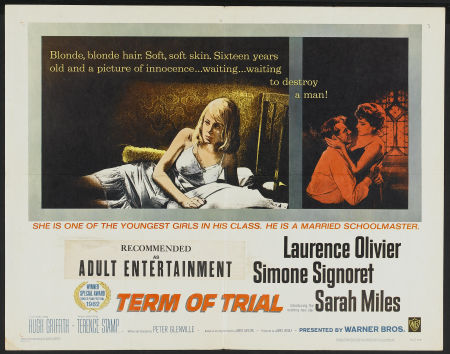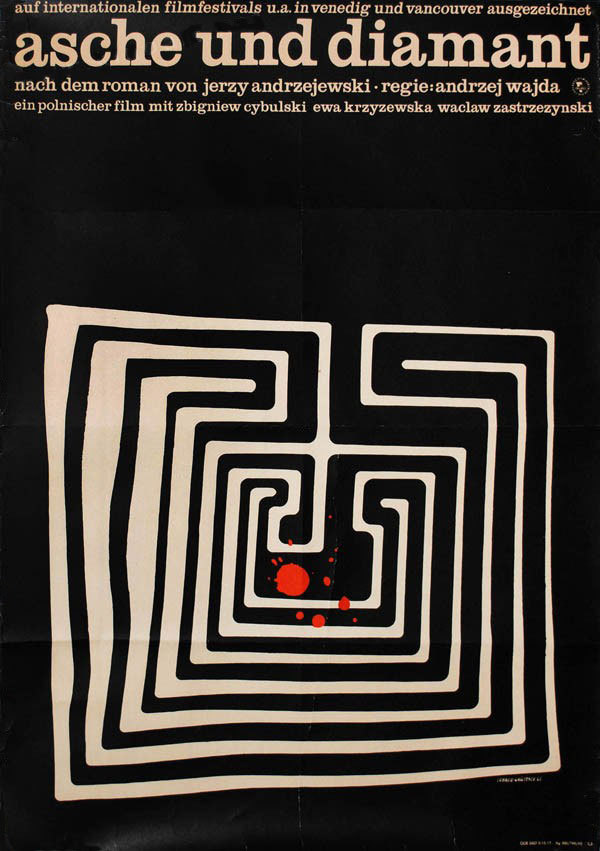Search This Blog
Saturday, August 31, 2013
Unfaithfully Yours (1948)
Hollywood Wives (1985)
Friday, August 30, 2013
The Lone Gun (1954)
Blue Jasmine (2013)
After suffering a nervous breakdown involving her wealthy husband's (Alec Baldwin) financial downfall and suicide, a woman (Cate Blanchett) attempts to get a fresh start by moving to San Francisco and living with her sister (Sally Hawkins). She is unable to disguise her contempt for her sister's downscale lifestyle and taste for "loser" boyfriends. Woody Allen's latest film is a variant of A STREETCAR NAMED DESIRE with a juicy role for Cate Blanchett as a woman slowly unraveling before our eyes. Unfortunately, there's not a note of authenticity in Blanchett's performance. True, if you look upon her character a phony (which there is some justification for) then it plays better but even phonies have flashes of honesty. One can see the wheels turning in Blanchett's mannered performance as she carefully connects all the dots like a good little actress but it's a forced performance. It's the kind of acting that Allen's former muses, Keaton and Farrow, did effortlessly. Perhaps the unkindest cut of all is Allen's condemnation of his lead character as a justification of his own peccadilloes. Set in San Francisco (affectionately shot by Javier Aguirresarobe THE OTHERS), one wonders how much time Allen actually spent there as two of his characters (played by Bobby Cannavale and Max Casella) are straight out of Brooklyn rather than the West Coast! Hawkins is pretty terrific here, not only giving the film's best performance but the film's most likable character. With Peter Sarsgaard, Louis C.K., Andrew Dice Clay, Michael Stuhlbarg and Tammy Blanchard.
Tristana (1970)
After her mother dies, a young girl (Catherine Deneuve) is taken in by an older friend (Fernando Rey) of her late mother. But the young girl's innocence is soon corrupted when the old man seduces her and becomes both father and husband to her. Loosely based on the novel by Benito Perez Galdos, Luis Bunuel's perverse examination of his favorite topics: the hypocrisy of the bourgeoisie, the impracticality of the Church, all with the impudent touches that mark it indubitably as a Bunuel film. In one of her best performances (even if she is dubbed into Spanish), Deneuve captures the innocence of a child/woman as she slowly finds her own voice but eventually becomes as venal as the man who exploited her. There's not much of the irreverent wit among the perversities that Bunuel usually injected into his films, this is a pretty bleak melodrama. But it stands with the best of his work. With Franco Nero as the lover who almost frees Deneuve from the clutches of her tormentor, Lola Gaos and Jesus Fernandez.
Thursday, August 29, 2013
Swing Time (1936)
A gambler (Fred Astaire), accompanied by his friend (Victor Moore), goes to New York to make his fortune so he can marry the woman (Betty Furness) he loves. Instead, he meets a dance teacher (Ginger Rogers) and they form a partnership and he becomes conflicted about returning to the girl he left behind. Quite possibly the best of the Astaire & Rogers collaborations, the film is near flawless on all levels. First off, there are those exquisite Jerome Kern and Dorothy Field songs including A Fine Romance, Pick Yourself Up and the sublime Oscar winning The Way You Look Tonight. The choreography by Hermes Pan is perfection including Bojangles of Harlem and the transcendent Never Gonna Dance, considered by many to be the apex of the Astaire & Rogers dances. Then there's the second bananas, the droll Helen Broderick and bumbling Victor Moore, who manage to hold their own every bit of the way. Directed by George Stevens, whose contribution makes the film stand a notch or two above the other Astaire & Rogers movies. With Eric Blore and Georges Metaxa.
The Card (aka The Promoter) (1952)
An ambitious washerwoman's son (Alec Guinness) weasels his way through opportunity and charm to wealth and position. That about sums up this amusing British comedy based on the popular 1911 Arnold Bennett novel. It's a rare romantic leading man role for Guinness and while he's no Cary Grant, he's got enough charm to be convincing as an unabashed opportunist able to win friends and influence people. His meteoric rise might be a bit quick to be authentic but that's not the point of the film, is it? Supporting Guinness in the fun are a bevy of talented actresses, notably Glynis Johns as a Guinness's female equivalent, a golddigging temptress who manages to latch on to any man with a healthy bank account. There's also winsome Petula Clark, Valerie Hobson as Guinness's first conquest, Veronica Turleigh and Joan Hickson. Retitled THE PROMOTER in America, it was turned into a musical in 1973. Directed by Ronald Neame (PRIME OF MISS JEAN BRODIE). With Michael Hordern, Wilfrid Hyde White, Edward Chapman and Joey, the mule (yes, he actually gets billing!).
Wednesday, August 28, 2013
Thunder Island (1963)
Tuesday, August 27, 2013
Dive Bomber (1941)
Top Secret Affair (1957)
Monday, August 26, 2013
Scorchers (1991)
Sunday, August 25, 2013
Black Gold (1962)
Saturday, August 24, 2013
The Member Of The Wedding (1952)
A gawky 12 year old tomboy (Julie Harris in her film debut) is no longer a child but not yet a woman. As she struggles with her pubescence, her identity and her place in the world, her 7 year old cousin (Brandon De Wilde) and a black housekeeper (Ethel Waters) provide companionship. Based on the play by Carson McCullers by way of her novel, this is an outstanding presentation of that terrible period in (most of) our lives where we don't fit our skins, where we don't belong and we're on the outside looking in. But McCullers' insightful work goes beyond the usual "coming of age" stories. It's about being different and not fitting because of that difference (though this is more explicit in McCullers' novel). Her dialogue is as good as Tennessee Williams at his best, so it's a pity she wasn't more productive as a playwright. Anchored by an unforgettable performance by the great Julie Harris (who died today which motivated me to rewatch it), she effortlessly plays a 12 year old at the age of 26 and she's utterly convincing! And when I say unforgettable, it's not hyperbole, once seen you'll never forget her performance. But equally remarkable is Ethel Waters who exhibits a lifetime of adversity and grief in her face and body language. Skillfully directed by Fred Zinnemann with a subtly evocative score by Alex North. With Nancy Gates, Arthur Franz and James Edwards.
Friday, August 23, 2013
Lee Daniels' The Butler (2013)
Thursday, August 22, 2013
Les Soeurs Bronte (aka The Bronte Sisters) (1979)
In the bleak English countryside, the three Bronte sisters (Isabelle Adjani as Emily, Isabelle Huppert as Anne, Marie France Pisier as Charlotte) and their brother Branwell (Pascal Gregory) live an austere existence with only each other and their creativity to give them solace. The film's running time reputedly had a three hour running time cut down to two hours. I suppose it's a blessing in disguise as the two hours we have move at a snail's pace and one shudders at sitting through three hours of such tedium. On the downside, that missing hour might have provided more insight into the lives of the Bronte family especially their creative drive which is all but absent from the film. I suppose one could carp at a movie about three famous English sister novelists living in the isolated Yorkshire moors being made in and by the French but Hollywood had been making films about France with American casts for years so what's good for the goose ..... but that's the least of the film's problems. It's just as lifeless as the gloomy Northern England setting on display despite the attempt by three of France's best actresses to breath life into it. Directed by Andre Techine. With Jean Sorel, Helene Surgere and Patrick Magee (dubbed into French) as the Bronte patriarch.
The Lady Vanishes (1938)
Letter From An Unknown Woman (1948)
Wednesday, August 21, 2013
Raw Deal (1948)
When a convict (Dennis O'Keefe) breaks out of jail with the help of his girlfriend (Claire Trevor), they hightail it to San Francisco where the escapee expects a $50,000 payoff from the mobster (Raymond Burr) that he took the fall for. Along the way, they take a pretty social worker (Marsha Hunt) as a hostage but things become uncomfortable when Trevor realizes O'Keeefe is falling for Hunt. An early noir effort by Anthony Mann, the film is unusual in several ways. The voice over is by Trevor's moll rather than the hero and one can't help but be touched by her one man woman who realizes she's losing her man and can't do anything to stop it. It's rather disheartening because we see what O'Keefe doesn't ... that Trevor is the better woman. Burr's villain is a bit of a coward and even his henchman (John Ireland) is derisive of him. There's also a scene that presages the famous coffee in the face of the heroine scene in THE BIG HEAT by five years but Burr tosses a flaming dessert to his mistress (Chili Williams) instead. John Alton's (ELMER GANTRY) expert B&W lensing practically defines film noir cinematography with its shadows, reflective surfaces and fog. The only element that seems off is Paul Sawtell's synthesizer laced score which more often than not suggests a science fiction movie rather than a noir. Also in the cast: Regis Toomey and Whit Bissell.
Tuesday, August 20, 2013
Betrayed (1954)
During WWII, a Dutch intelligence officer (Clark Gable) reluctantly sends a woman (Lana Turner) into the Nazi occupied Netherlands as a spy even though he is suspicious of her loyalties. Her mission is to join forces with a Dutch resistance fighter (Victor Mature). The story itself has a potential that the script doesn't take advantage of but miscasting compromises any chance of believability. The scowling Gable, a brunette Turner and the swaggering Mature are more Hollywood than ever and placed in actual Holland locations and a European cast, they stand out like Wall Street brokers in a "hippie" commune. Turner looks quite pert in her brunette locks but she compensates for her miscasting by getting all actress-y and while it works beautifully in BAD AND THE BEAUTIFUL or IMITATION OF LIFE, it's quite out of place here. This was the last of the four movies Turner and Gable did together and the chemistry on display in the previous three isn't in evidence here. Directed by Gottfried Reinhardt (TOWN WITHOUT PITY). The large supporting cast includes Louis Calhern, Wilfrid Hyde White, Nora Swinburne, Niall MacGinnis, Roland Culver, Anton Diffring and O.E. Hasse.
Wednesday, August 14, 2013
Don Giovanni (1979)
Tuesday, August 13, 2013
The Parent Trap (1961)
At a summer camp in the mountains, a girl from Boston (Hayley Mills) meets a girl (also Hayley Mills) from California and they're astonished at how much they look like each other. When they discover they share the same birthdate, they begin to piece together that they were twins who were separated as infants when their parents divorced. They switch identities so each can meet the parent they never knew. Has anyone who saw this film in their adolescence ever forgotten it or outgrown it? It has an overwhelming pull that goes beyond mere nostalgia. Based on the German book DAS DOPPETTE LOTTCHEN by Erich Kastner, director David Swift (HOW TO SUCCEED IN BUSINESS WITHOUT REALLY TRYING), who also did the screenplay, has crafted a charming fable that taps into the fantasies of children of divorce. Despite a wonky American accent, Mills does a credible job in differentiating the contrasting twins, one a tomboy and the other a perfect young lady. As the divorced parents, Maureen O'Hara (looking gorgeous) and Brian Keith make for an attractive couple (they did Peckinpah's DEADLY COMPANIONS the same year) and Joanna Barnes makes for a marvelous golddigger, her "fish out of water" camping trip scenes are hilarious. Remade in 1998 with Lindsay Lohan as the twins. Also in the cast: Leo G. Carroll, Charles Ruggles, Una Merkel, Cathleen Nesbitt, Ruth McDevitt, Linda Watkins and Nancy Kulp.
Sunday, August 11, 2013
Vantage Point (2008)
Saturday, August 10, 2013
Le Sang D'un Poete (aka The Blood Of A Poet) (1932)
An artist (Enrique Rivero) wipes away the mouth of a portrait he is drawing and finds the mouth has attached itself to the palm of his hand ... and it speaks to him! Thus begins Jean Cocteau's surrealistic journey of images that have no narrative tying them together. I suppose one could attempt to decipher a theme or a "message" from Cocteau's dream like voyage but why? It works perfectly well as a visual equivalent of a literary form. It's not what it means so much as what it makes you feel or project onto it. The film is purposely cryptic: a statue coerces a man to jump through a mirror, an abused child floats to the ceiling to avoid his tormentor, a lethal snowball kills a boy, an elegantly dressed couple play cards by a dead body whose guardian later literally absorbs the boy into himself, etc. One could call it Cocteau in Wonderland and you wouldn't be far off! The film is brief (less than an hour) but its images will stay with you much longer than that.
Across The Pacific (1942)
Set just days before the Japanese attack on Pearl Harbor, a man (Humphrey Bogart) is court-martialed from the U.S. Coast Artillery for embezzling funds. In disgrace, he sets sail on a Japanese freighter that will pass through the Panama Canal. Once on board, he become involves in some intrigue involving a beautiful woman (Mary Astor), a pro-Japanese doctor (Sydney Greenstreet) and a Japanese-American (Victor Sen Yung). The film has many of the key personnel from THE MALTESE FALCON: in addition to the three leads, there's director John Huston, cinematographer Arthur Edeson and composer Adolph Deutsch. Needless to say, it's nowhere near as good. Bogart, Astor and Greenstreet essentially do a variation on their MALTESE characters. Repeating a line from FALCON, Bogart even says to Astor, "You're good!" when he suspects duplicity on her part. It's a serviceable propaganda piece that moves along amiably until it falls flat on its face at the end. Its problems are probably mainly due to the fact that the film faced a hasty rewrite (it was supposed to be about subverting an attack on Pearl Harbor then Pearl Harbor got bombed for real) and that Huston left the film before it was finished. With Lee Tung Foo, Frank Wilcox, Richard Loo, Keye Luke, Frank Faylen, Anthony Caruso and Philip Ahn.
Friday, August 9, 2013
Secret Of The Incas (1954)
Lovelace (2013)
The Story Of Esther Costello (1957)
Thursday, August 8, 2013
Oliver! (1968)
In the mid 1800s, an orphan (Mark Lester) runs away from a workhouse to London where he falls in with a group of child pickpockets and thieves led by a devious crook (Ron Moody). On the face of it, Charles Dickens' OLIVER TWIST would seem an unlikely subject for a musical but the show (with music and lyrics by Lionel Bart) was a hit in both London's West End and on Broadway. Carol Reed's film adaptation ranks with the greatest movie musicals ever made. Reed doesn't attempt to make the film a wholesome family musical. Dickens' darkness is still there whether in the grim workhouse surroundings, Bill Sikes' (Oliver Reed, the director's nephew) chilling sadist and his physical abuse of his mistress Nancy (Shani Wallis) or Fagin's (Moody) criminal exploitation of the children. Yet there are moments of sheer joy like the early morning Who Will Buy? number and the lovely I'd Do Anything that are so jubilant that it brings tears to your eyes. Reed has a huge assist from John Box's incredible Oscar winning production design and Onna White's stunning choreography (so impressive that she was voted an honorary Oscar for her work here). The performances are uniformly excellent. With Jack Wild, Harry Secombe, Hugh Griffith, Peggy Mount, Leonard Rossiter and Megs Jenkins.
Shatter (1974)
Wednesday, August 7, 2013
North By Northwest (1959)
An advertising executive (Cary Grant) is kidnapped in a case of mistaken identity. A foreign agent (James Mason) assumes him to be a spy but when Grant denies this, Mason orders him killed in a driving "accident". He manages to escape but the authorities don't believe his story and he finds himself reluctantly over his head in a game of espionage of which he has no control. What can one say about NORTH BY NORTHWEST that hasn't already been said? One of the most entertaining chase movies ever made, it's such a dizzily inventive thriller that one can easily forgive Alfred Hitchcock's implausible over embellished narrative. The epitome of the term "Hitchcockian", the film contains the usual Hitchcock scenario: the falsely accused innocent man, the cool blonde (Eva Marie Saint in a rare glamorous role) and some of the greatest set pieces in his entire filmography. Notably, the classic crop dusting sequence, the breathtaking chase on the face of Mount Rushmore and the impudent Freudian last shot. As close as one can get to sheer perfection without actually being perfect. The witty Oscar nominated screenplay is by Ernest Lehman and there's a dynamic score by Bernard Herrmann. With Martin Landau, Jessie Royce Landis, Leo G. Carroll, Josephine Hutchinson, Philip Ober and Edward Platt.
Tuesday, August 6, 2013
Sitting Target (1972)
Monday, August 5, 2013
My Blue Heaven (1950)
Term Of Trial (1962)
A mild mannered schoolmaster (Laurence Olivier) is stuck in a dead end job and an unhappy marriage to a French wife (Simone Signoret). When an overdeveloped teenage girl (Sarah Miles in her film debut) develops a crush on him, she attempts to seduce him but he rejects her. In revenge, she accuses him of assaulting her. It's hard what to make of TERM OF TRIAL. It's intentions seem honorable enough but it has the air of a "ripped from the headlines" exploitation movie. Based on the novel by James Barlow, the director Peter Glenville manages to keep a lid on the more lurid aspects of the story but both Olivier's and Miles' characters seem too artfully constructed to comes across as real. As a director, Glenville has an assured hand with actors as he showed with films like SUMMER AND SMOKE and BECKET and he doesn't fail us here. The most interesting character though is Signoret as the wife. An uneducated woman in a foreign country whose contempt for her husband's weakness has made her a bitter harridan. Now, a film about how those two got together in the first place would make for a fascinating film. The film contains the only film score composed by the classical composer Jean Michel Damase. With Terence Stamp (also in his film debut), Hugh Griffith, Roland Culver, Thora Hird, Allan Cuthberson, Barbara Ferris and Julia Foster.
Sunday, August 4, 2013
F. Scott Fitzgerald And The Last Of The Belles (1974)
During a particularly difficult time in their marriage, the writer F. Scott Fitzgerald (Richard Chamberlain) writes a short story called THE LAST OF THE BELLES in which he fictionalizes the first meeting of he and his wife Zelda (Blythe Danner) and gives it the ending that maybe it should have had instead of what actually transpired. Directed by George Schaefer, the film spends most of its running time on Fitzgerald's short story with the fictional Fitzgerald (David Hoffman, tragically murdered at 39) and Zelda (Susan Sarandon) which is just as well since it's far the more compelling of the storylines. As Fitzgerald, Chamberlain is inauthentic and though Zelda is underwritten, Danner brings an inner life which makes you want more of her performance while Sarandon makes for a bewitching Southern belle. The film's insistent use of period tunes eventually becomes grating, as if the film makers didn't trust us (despite the setting and costumes) to get that this was taking place during WWI. With James Naughton, Brooke Adams, Richard Hatch, Jane Hoffman and Ernest Thompson (who would later write ON GOLDEN POND).
A Kiss Before Dying (1956)
A scheming social climber (Robert Wagner) from a middle class background woos a girl (Joanne Woodward) from a wealthy family. But when she gets pregnant, he realizes her disapproving father (George Macready) will cut her out of his will thus making her of no use to him. So he murders her while making it look like a suicide. But his ambitious plans won't stop there and he continues on both his gold digging and homicidal paths. Based on the award winning novel by Ira Levin (ROSEMARY'S BABY), this is a compact little noir-ish thriller directed by Gerd Oswald (SCREAMING MIMI) with a controlled grasp that keeps things tight and moving at an economical clip. Rather than shoot the film in B&W with all the shadows and light associated with noir, like LEAVE HER TO HEAVEN it's shot in vivid and bright sunshine. The film gives the young Wagner a juicy role that showed he was more than just a hunky pin-up for teenaged girls and possessed a genuine acting ability. With Jeffrey Hunter, Mary Astor, Virginia Leith and Robert Quarry.
Saturday, August 3, 2013
Romolo E Remo (aka Duel Of The Titans) (1961)
This Could Be The Night (1957)
Jack London (1943)
In 1890, an aspiring writer (Michael O'Shea) is determined to lift himself out of poverty. After a series of odd jobs, he travels to the Yukon where trapped by the snow in his cabin, he writes THE CALL OF THE WILD and he's on his way as one of the most popular writers of the early 20th century. As with most film biographies of this period, this is a mixture of fact and fiction with fiction winning out. The very early parts of the film featuring his black foster mother (Louise Beavers) and his waterfront mistress (Virginia Mayo, who would become Mrs. O'Shea four years later) have a basis in fact then it goes off the track. It totally eliminates his first marriage and two children and jumps to his second marriage to his publisher's reader (Susan Hayward in her ingenue period). Worst of all, the film's last third which is set in Japan during the Russo-Japanese War of 1904 becomes a stand in for WWII with London writing articles with predictions and warnings of Japan's plans for world domination. As London, O'Shea seems rather innocuous and anachronistic, never giving the viewer the sense of a creative mind. Directed by Alfred Santell. With Osa Massen, Harry Davenport, Ralph Morgan and Regis Toomey.
Friday, August 2, 2013
Popiol I Diament (aka Ashes And Diamonds) (1958)
Set in Poland during the last days of WWII, a member (the unappealing Zbigniew Cybulski) of the Polish resistance movement, along with another comrade (Adam Pawlikowski in the film's best performance), are given the task of assassinating a Communist leader (Waclaw Zastrzeznski). He kills the wrong man however and holds up in a hotel where the Commissar is staying to finish his job. While waiting, he romances a young bardmaid (Ewa Krzyzewska). Based on the 1948 novel by Jerzy Andrzejewski, the film is beautifully shot in B&W by Jerzy Wojcik whose gifted lensing made the film for me. In most other respects, I found Andrzej Wajda's much admired film a rather dreary watch. It's such an unsubtle film that I had the feeling I'd seen it before (I hadn't) and found Cybulski, often referred to the Polish James Dean (as if ...) more of an imitation than an original. I freely admit I'm not much of a fan of Polish or Czech cinema and ASHES AND DIAMONDS despite watching it with an open mind, only confirms my antipathy. With Bogumil Kobiela whose performance as a bureaucrat playing both sides of the fence (the resistance and the Communists) is too cartoonish to take seriously.
Thursday, August 1, 2013
Isn't She Great (2000)
A struggling actress (Bette Midler) is getting nowhere in her acting career so her husband (Nathan Lane) prods her to write a novel about what she knows best ..... the seamy side of show business. Not only must she deal with the numerous turn downs from the more prestigious publishing houses but she must deal with the institutionalization of her autistic son and breast cancer. But she finally gets her novel published and it becomes the biggest selling book of all time ..... VALLEY OF THE DOLLS! This is a glossy, highly fictionalized movie biography on DOLLS' author Jacqueline Susann re-imagined as a comedy with drama around the edges. Susann's real life, which contained as much lurid melodrama as her books, would make a fascinating movie but this isn't it. The movie skips over a lot of things like her first book which sold well and makes it seem that DOLLS was her first published book. Midler doesn't play the ambitious hard edged Susann, she seems content to play Susann as yet another version of her "Divine Miss M" persona. Lane fares somewhat better but best of all is Stockard Channing as Susann's glamorous actress friend. There's a nice score by Burt Bacharach though. Directed by Andrew Bergman. With John Cleese, David Hyde Pierce, John Larroquette, Amanda Peet and Christopher McDonald.
Subscribe to:
Posts (Atom)

.jpg)







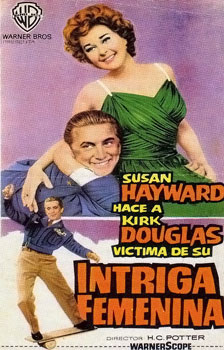


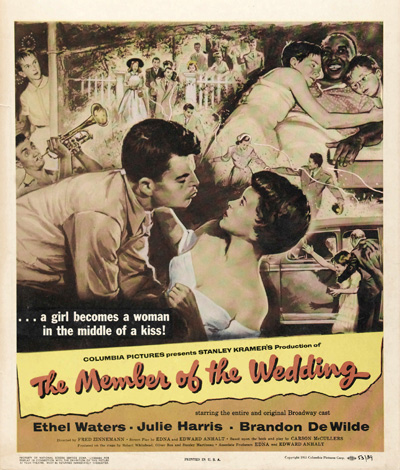

.JPG)
.JPG)


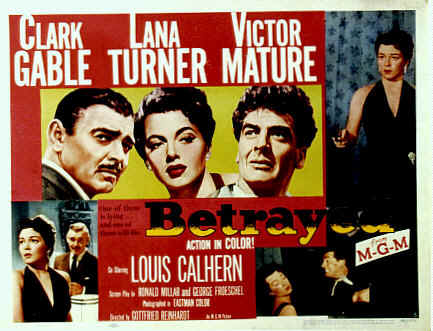

.JPG)






.JPG)

.JPG)


